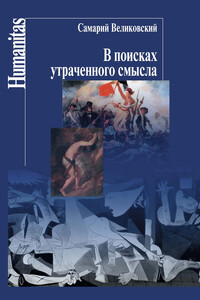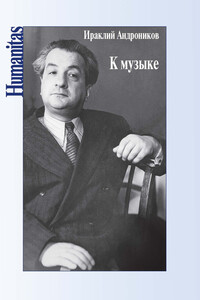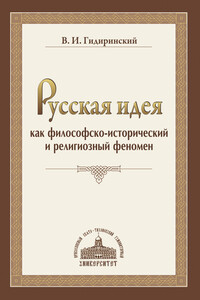251. Smuts J. Ch. Holism and Evolution. L.: Macmillan, 1926.
252. Stanley D. On Maturana and Varela’s Aphorism of Knowing, Being and Doing //
Proceedings of the 2008 Complexity Science and Educational Research Conference, February 3–5, 2008, Athens (Georgia). from http://www.nytimes.com/2005/08/02/science/02cell.html
253. Stella M., Kleisner K. Uexküllian Umwelt as Science and as Ideology: the Light and the Dark Side of a Concept // Theory in Biosciences. 2010. Vol. 129. P. 39–51.
254. Stengers I. La Vie et lArtifce: visages de l’émergence. P.: Découverte, 1997.
255. Stengers I. Penser avec Whitehead. Une libre et sauvage creation de concepts. P.: Éditions du Seuil, 2002.
256. Stróżewski W. Man as αρχη // Reports on Philosophy. Warsaw; Cracow, 1984. N 8.
257. The Dynamical System Approach to Cognition. Concepts and Empirical Paradigms Based on Self-organization, Embodiment, and Coordination Dynamics. Singapore: The World Scientifc Publishing Company Co., 2003.
258. Thelen E. Time – Scale Dynamics and the Development of an Embodied Cognition // Mind as Motion. Explorations in the Dynamics of Cogniion / Ed. by Robert F. Port and Tymothy van Gelder. Cambridge: The MIT Press, 1995. P. 70–98.
259. Thompson E. Life and Mind: From Autopoiesis to Neurophenomenology A Tribute to Francisco Varela // Phenomenology and the Cognitive Sciences. 2004. Vol. 3. P. 381–398.
260. Thompson E. Sensorimotor Subjectivity and the Enactive Approach to Experience // Phenomenology and the Cognitive Sciences. 2005. Vol. 4. P. 407–427.
261. Thompson E. Mind in Life. Biology, Phenomenology and the Sciences of Mind. Cambridge (MA): Harvard Univ. Press, 2007.
262. Tommasi L., Nadel L., Peterson M. A. Cognitive Biology: The New Cognitive Sciences // Cognitive Biology: Evolutionary and Developmental Perspectives on Mind, Brain, and Behavior / Ed. by Luca Tommasi, Mary A. Peterson, and Lynn Nadel. Cambridge: The MIT Press, 2009.
263. Tønnessen M. Umwelt Ethics // Sign Systems Studies. 2003. Vol. 31. N 1.
264. Tønnessen M. Steps to a Semiotics of Being // Biosemiotics. 2010. Vol. 3. P. 375–392.
265. Torrance S. In Search of the Enactive: Introduction to Special Issue on Enactive Experience // Phenomenology and the Cognitive Sciences. 2006. Vol. 4. P. 357–368.
266. Uexküll J. von. Umwelt und Innenwelt der Tiere. B.: Verlag von Julius, 1909.
267. Uexküll J. von. Streifzüge durch die Umwelten von Tieren und Menschen. Frankfurt: Fischer, 1970 (Erste Aufage 1933).
268. Uexküll J.B. von. A Stroll through the worlds of animals and men: a picture book of invisible worlds // Instinctive Behavior. C. Schiller ed. N-Y: International Universities Press. 1975. P. 30–31. [1>st ed. 1933].
269. Vaassen B. Die narrative Gestalt(ung) der Wrklichkeit. Grundlinien einer postmodern orientierten Epistemologie der Sozialwissenschaften. Braunschweig; Wiesbaden: Vieweg, 1996.
270. Valéry P. Cahiers. T.2. P.: Gallimard, 1974.
271. Varela F. J. The Early Days of Autopoiesis: Heinz and Chili // Systems Research. 1996. Vol.13. N 3. P. 408–409.
272. Varela F. J. Patterns of Life: Intertwining Identity and Cognition // Brain and Cognition. Vol. 34. 1997. P. 72–87.
273. Varela F. J. The Specious Present. A Neurophenomenology of Time Consciousness // Naturalizing Phenomenology. Issues in Contemporary Phenomenology and Cognitive Science. Stanford: Stanford Univ. Press, 1997. P. 266–314.
274. Varela F. Der kreative Zirkel. Skizzen zur Naturgeschichte der Rückbezüglichkeit // Die erfundene Wrklichkeit. Wie wissen wir, was wir zu wissen glauben? / Hrsg. von Paul Watzlawick. München: Piper, 1998. 10. Aufage. S. 294–309.
275. Varela F. Quatre phares pour l’avenir des sciences cognitives // Théorie – Littérature – Enseignement. 1999. N 17. P. 7—21.
276. Varela F., Thompson E., Rosch E. The Embodied Mind. Cognitive Science and Human Experience. Cambridge (MA): The MIT Press, 1991 Cambridge: MIT Press, 1991. (7>th printing 1999).
277. Vaihinger H. Die Philosophie des Als Ob. System der theoretischen, praktischen und religiösen Fiktionen der Menschheit auf Grund eines idealistischen Positivismus. Leipzig: Verlag von Felix Meiner, 1924.







